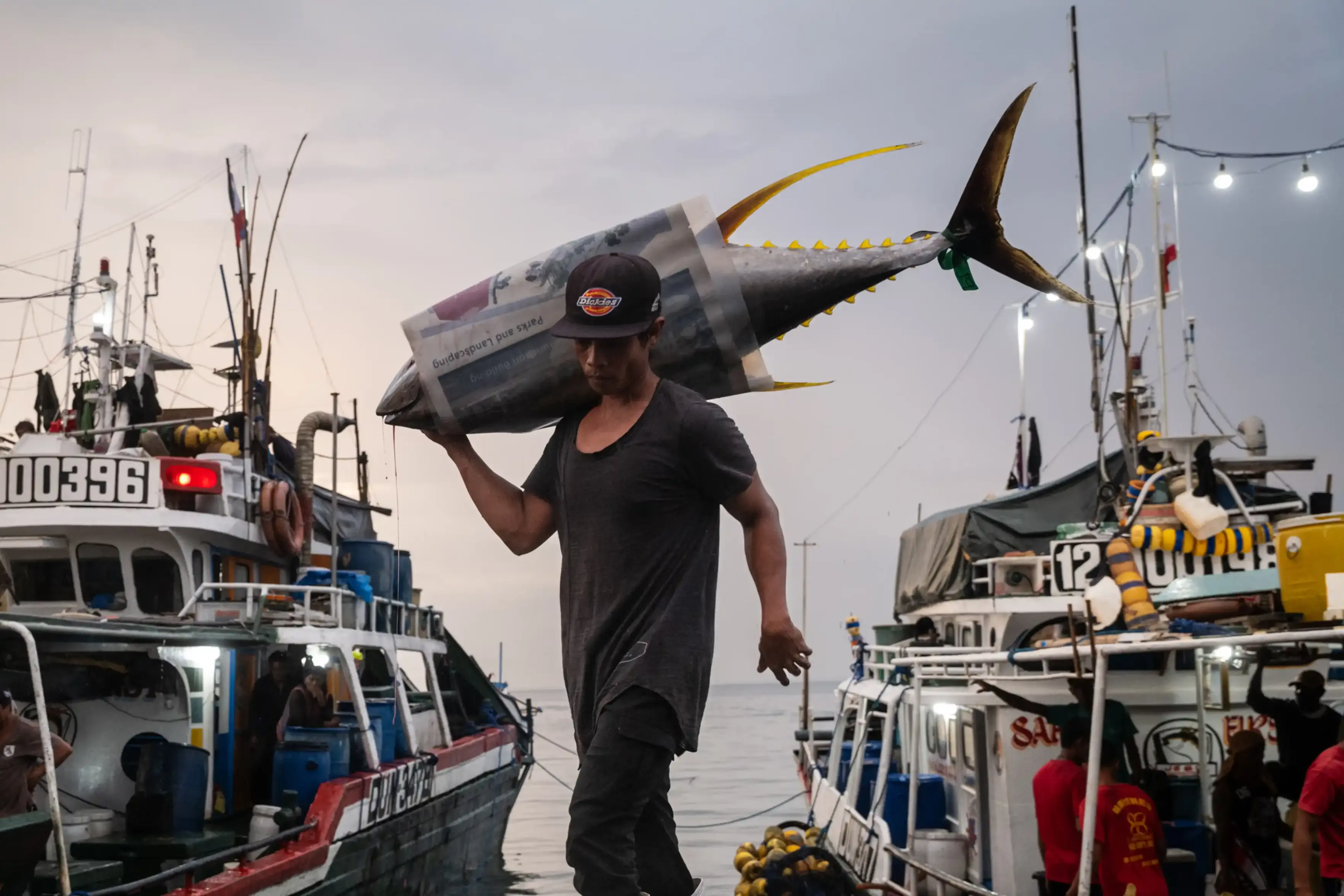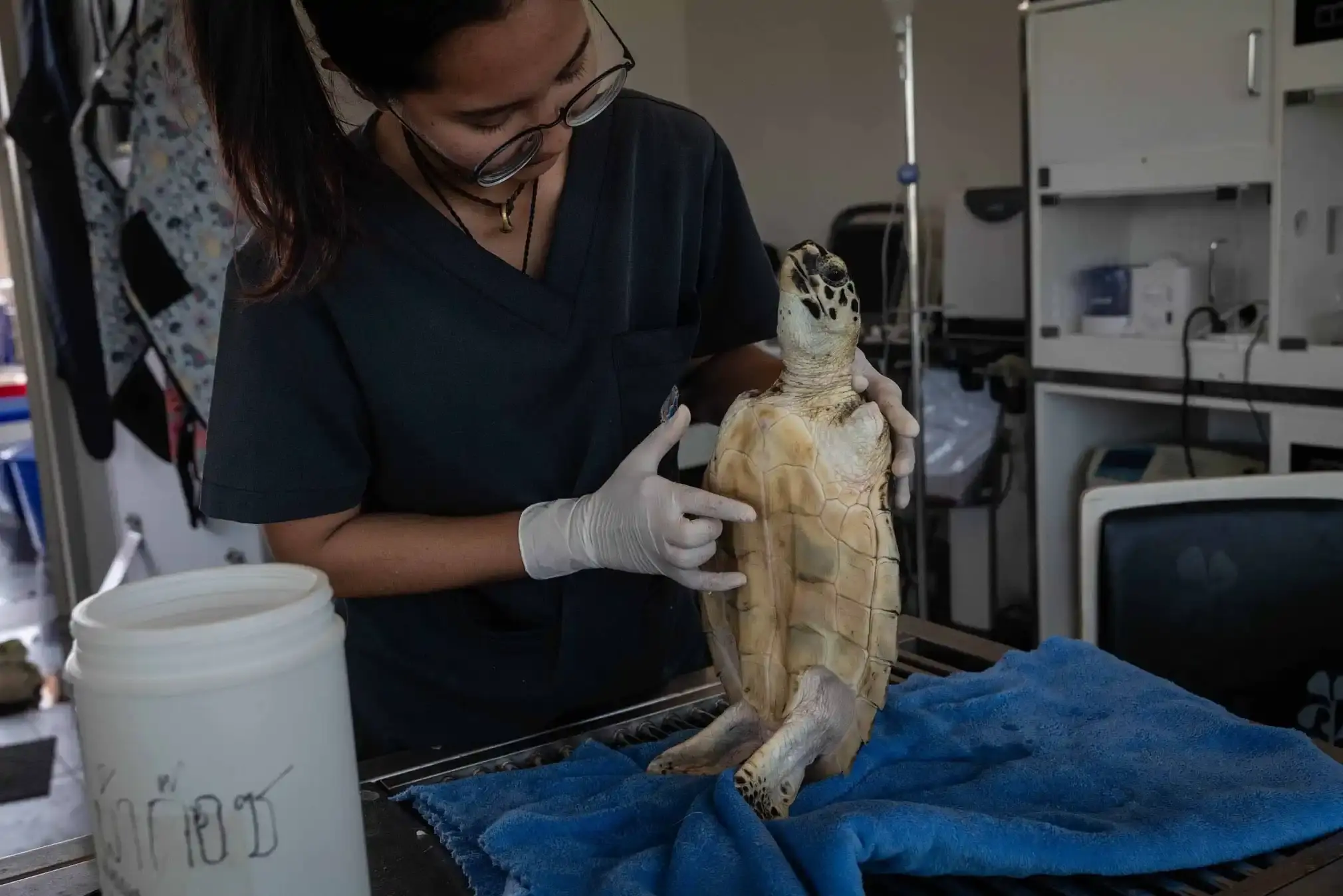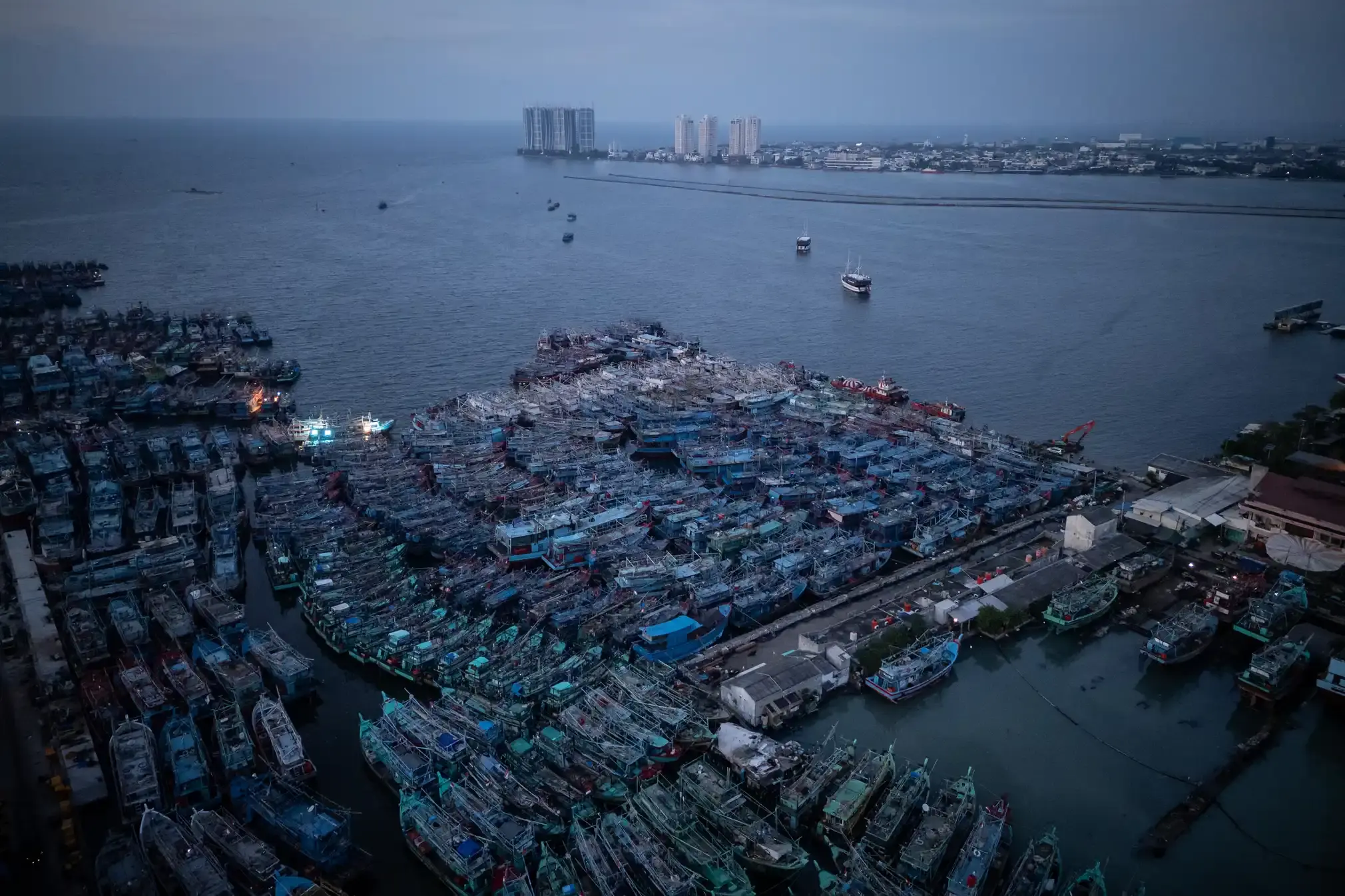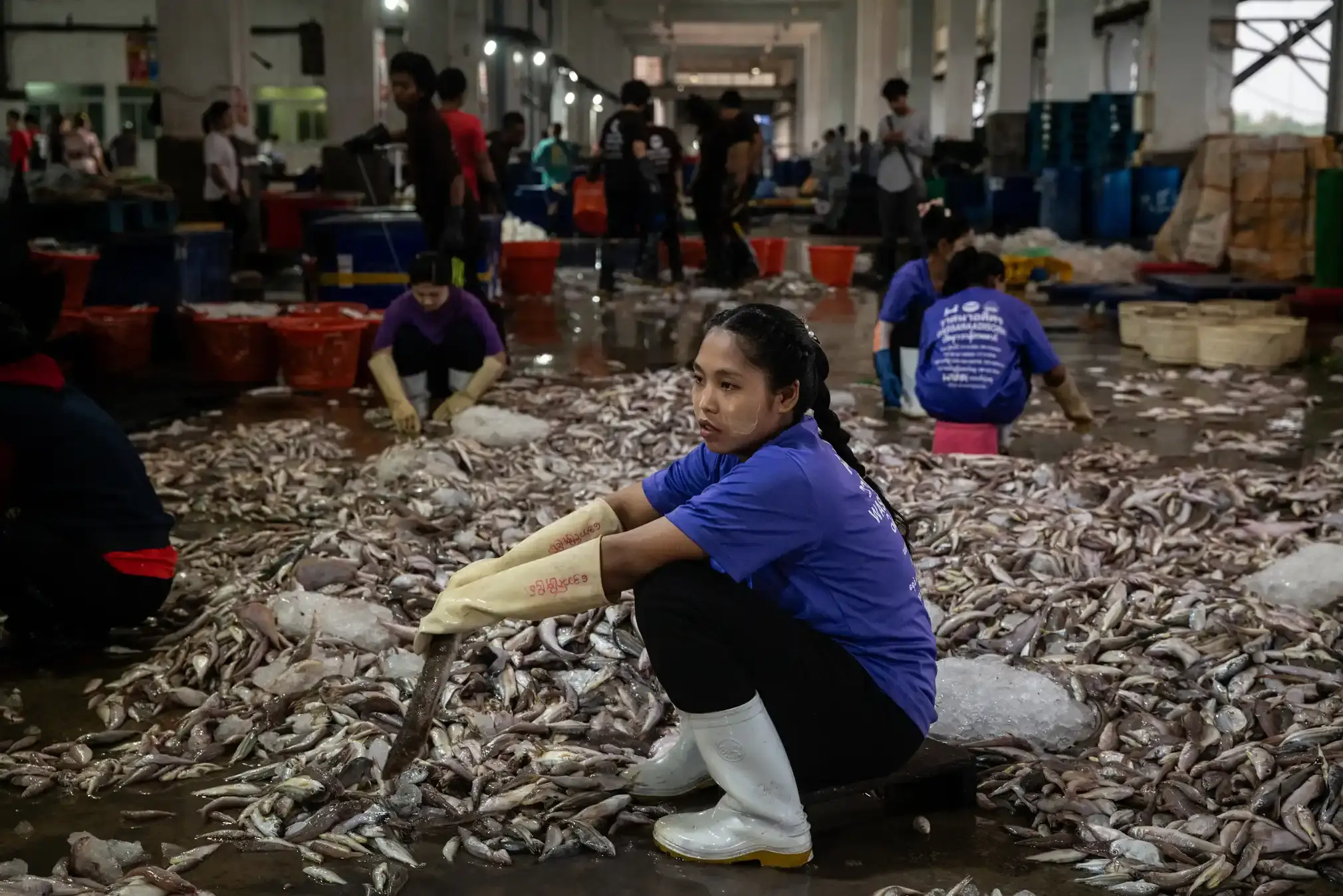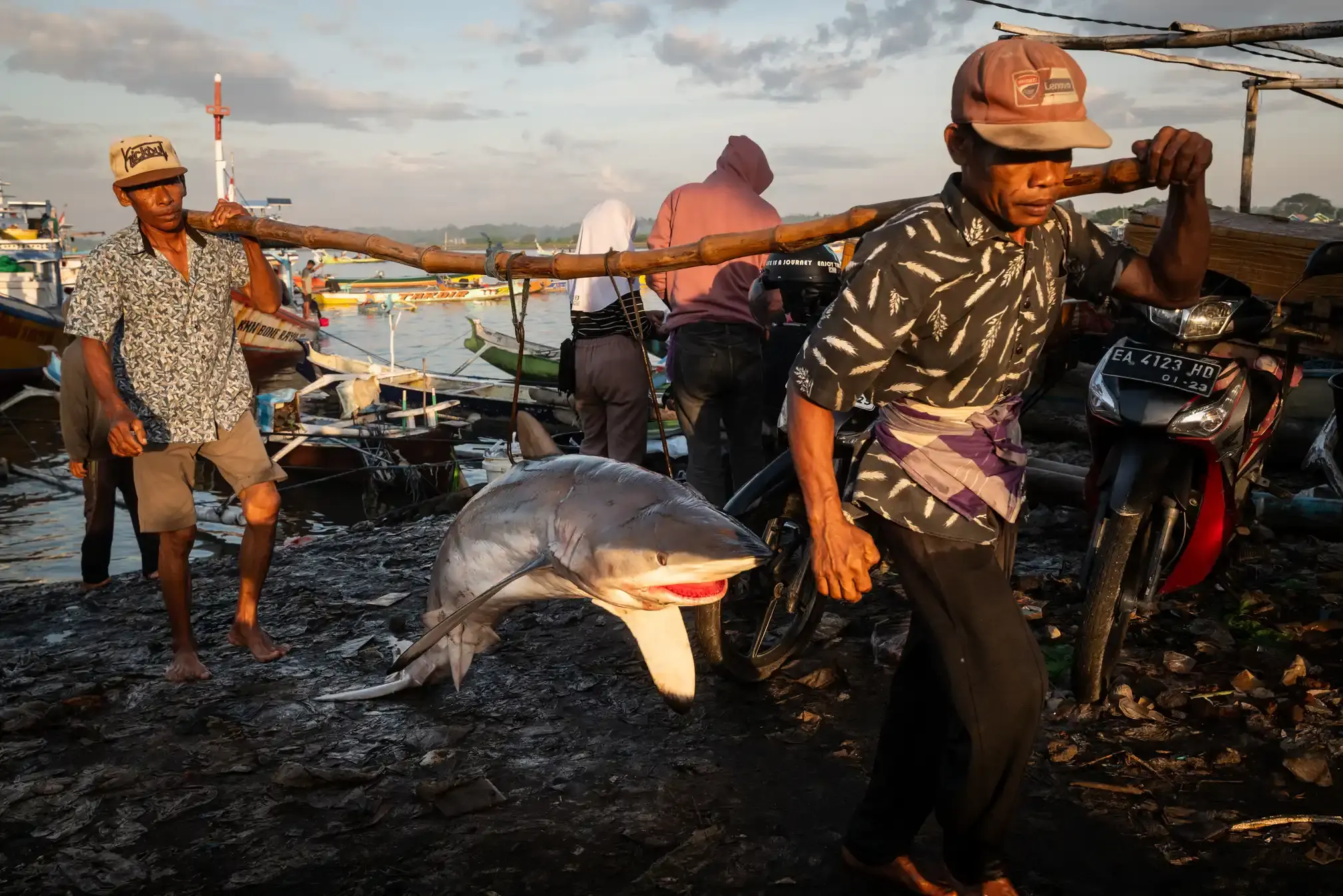Sacks of ground fishmeal in a factory in Chumphon, #Thailand. Fishmeal is a coarsely ground powder made from cooked wild fish, bycatch and what is known as trash fish – fish with little market value. The demand for fishmeal, used to feed pets and livestock, has caused overfishing that threatens to collapse the bottom of the food chain.
Draining the sea: fishing in crisis in south-east Asia
Filipino fishers unload catches of yellowfin and bigeye tuna and blue marlin at the port of General Santos, after being at sea for about a month. Photograph: Nicole Tung
Sacks of ground fishmeal in a factory in Chumphon, #Thailand. Fishmeal is a coarsely ground powder made from cooked wild fish, bycatch and what is known as trash fish – fish with little market value. The demand for fishmeal, used to feed pets and livestock, has caused overfishing that threatens to collapse the bottom of the food chain.
Oranee Jongkolpath, 30, a vet at Thailand’s Marine and Coastal Resources Research and Development Institute in Rayong province, prepares to clean a hawksbill turtle with a double amputation. The turtle was found by fishers among rubbish, and was probably entangled in ghost nets – lost or discarded fishing nets.
Sacks of ground fishmeal in a factory in Chumphon, #Thailand. Fishmeal is a coarsely ground powder made from cooked wild fish, bycatch and what is known as trash fish – fish with little market value. The demand for fishmeal, used to feed pets and livestock, has caused overfishing that threatens to collapse the bottom of the food chain.
Muara Angke in Jakarta, where hundreds of boats are docked, is the largest commercial fishing port in # Indonesia
A Burmese dock worker sorts fish into species after a catch from a Thai vessel was unloaded at a landing site in Ranong.
Draining the sea: fishing in crisis in south-east Asia
Filipino fishers unload catches of yellowfin and bigeye tuna and blue marlin at the port of General Santos, after being at sea for about a month. Photograph: Nicole Tung
Various species of sharks, some endangered or vulnerable, are hauled on shore at dawn by commercial fishers at Tanjung Luar in East Lombok, Indonesia. The port has one of the largest shark markets in Indonesia and south-east Asia. Sharks’ fins are exported from here, primarily to Hong Kong and China. Their bones are used in cosmetic products, also sold to China, and the meat and skins are consumed locally.
Draining the sea: fishing in crisis in south-east Asia
Filipino fishers unload catches of yellowfin and bigeye tuna and blue marlin at the port of General Santos, after being at sea for about a month. Photograph: Nicole Tung

